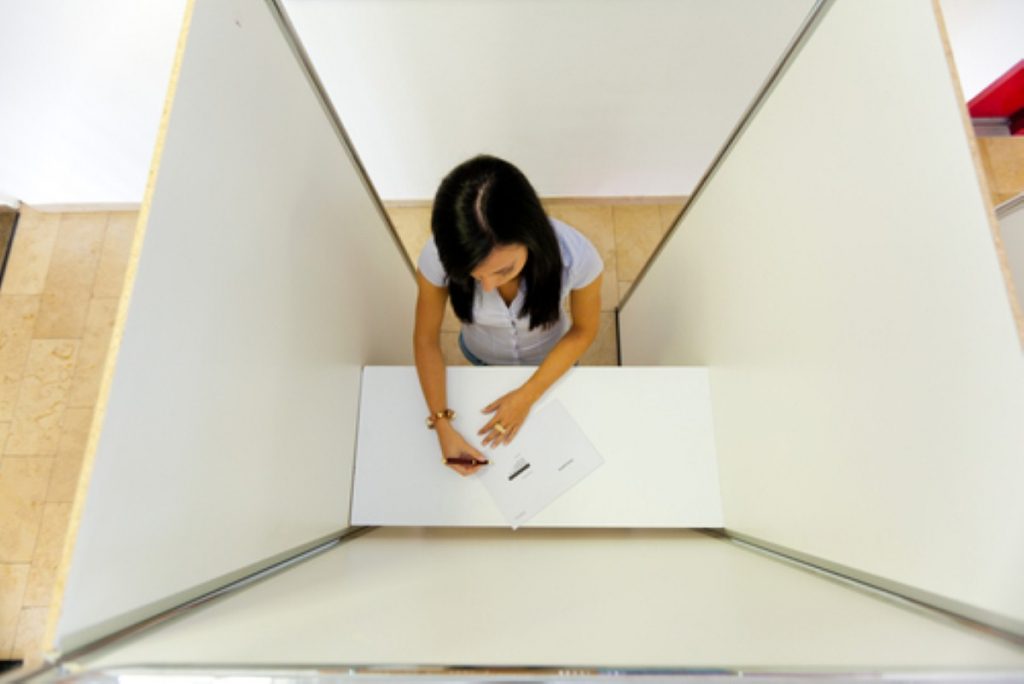Comment: Your vote doesn’t count – we need open primaries
By James O'Malley
If you live in a safe seat, then chances are that your vote in the general election won't matter. It's a foregone conclusion which party wins. Sorry, but on the May 7th you could just stay in bed and have the same impact on the outcome.
In reality, the real battle to choose the next MP in the safe seats happened years, months and weeks ago. It was a battle in the political parties themselves. In the time leading up to the election, party members voted for who would represent their party in their constituency.
In other words, the next MP in a safe seat is chosen by probably a couple of hundred people (at most) – and those people are the most hardcore activists. According to the Electoral Reform Society, over half the constituencies in Britain – 364 – are safe seats.
This doesn't seem very democratic.
Why can't we take a lead from the American system and have primary votes to select candidates for each coming election? A system where normal voters and not just a dedicated few get to pick the candidates for the major parties who will duke it out at the election.

Open primaries would allow more voters a say over party candidates
Such an idea isn't completely unknown in this country. Perhaps the most visible experiment was for former GP Sarah Wollaston, one of the more palatable Tories, who was selected by open primary.
What if there was a law passed that said, for example, any party that has over 50 seats in the House of Commons must hold open primaries to select candidates at the next election?
It would mean that suddenly all of the perennially safe seats would be in play – to the extent that everyone who lives in them would get to express a meaningful vote for their next MP – if not on election day, then in the primary running up to it.
There would be few downsides: The parties would still be happy, as at the end of the day they would still get someone with the correct rosette helping them form their parliamentary caucus, and voters would be happy as they still get a say.
An added bonus would be that the party candidates would be much more reflective of the constituency at large. Rather than have 200 hardcore Tories in a constituency select a hard-right Tory MP, Conservative candidates would have to moderate their views and platform in order to appeal to non-partisan and even Labour voters if they want to pass the primary. To use the example of Sarah Wollaston again, she has received praise since being elected in 2010 for standing up to her party on a number of issues – because her mandate was granted not by what used to be known (before the smoking ban) as the smoky back room, but by a much larger pool of voters in her constituency.

Relatively moderate candidates like Mitt Romney are a result of the open primary system
Proof that primaries work can be seen in the American system. If you imagine the American presidential election as a single constituency (for the sake of ease), both parties put up a wide range of candidates who, through the primary process, voters finely tune to the two best options. That's why the Republicans ended up with a relatively moderate Mitt Romney and not one of the clown-car of crazy people who stood against him. And it's why the Democrats ended up with relatively moderate Obama rather than totally crazy (by American standards) Bernie Sanders. Whilst it is true that most (but not all) Republican and Democratic primaries are open only to registered party supporters, the American party system is much weaker – with party affiliation only being a weak identifier for a much broader ideological spectrum, and you don't have to pay membership dues to vote – so in effect, the primaries are open for almost anyone to vote in.
(A throat-clearing disclaimer: The US system is not perfect. American politics is broken for many reasons, but primaries are not one of them. You're thinking of the big money involved and the flawed distribution of power between the branches of government. Yes, I like Bernie Sanders too and would vote for him, but I also accept he probably wouldn't be the result of the aggregated views of most Americans.)
Open primaries aren't a catch-all solution. Turnout would inevitably still be low – but I'd still rather have a four-figure turnouts than what is effectively three when the selection takes place in a small meeting. And who knows, perhaps once voters at large understood what primaries were for and how they worked, they could be just as motivated as on election day itself?
Given how any bolder attempt at electoral reform seems doomed to failure in the short to medium term (remember AV?), this would be a more achievable way to make votes count – within the existing first-past-the-post structure. Who could argue with greater democratic participation anyway?
James O’Malley tweets as @Psythor.
The opinions in Politics.co.uk's Comment and Analysis section are those of the author and are no reflection of the views of the website or its owners.





-01.png)